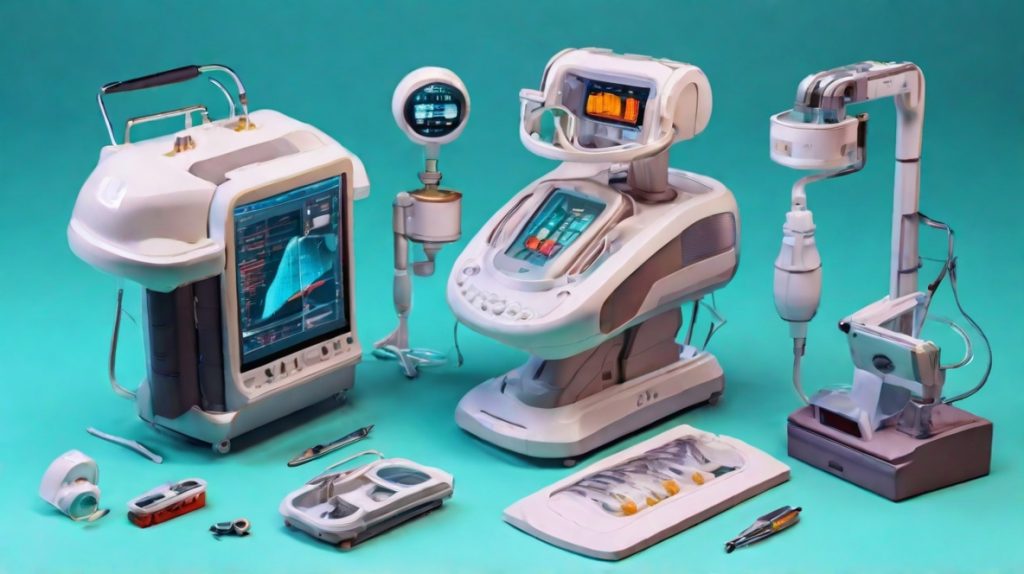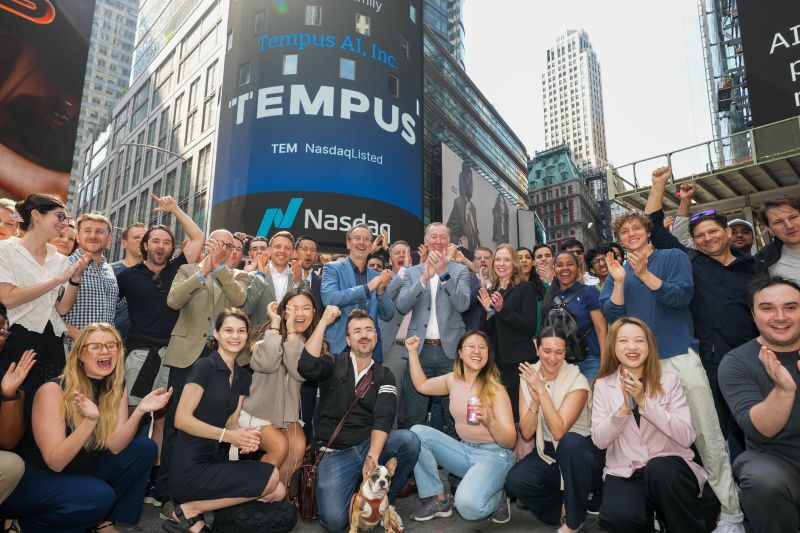In a significant move to advance healthcare through artificial intelligence, Japanese technology investor SoftBank Group has announced a joint venture with Tempus AI, a leader in precision medicine. The new venture, named SB TEMPUS Corp., aims to bring AI-driven medical data analysis and personalized treatment recommendations to the Japanese market.
The Partnership
SoftBank’s CEO Masayoshi Son revealed the partnership during a briefing in Tokyo, highlighting it as part of SoftBank’s recent focus on AI investments. The joint venture agreement was entered into in May 2024, with an expected closing date in July 2024, subject to customary closing conditions. Both SoftBank and Tempus plan to invest 15 billion yen (approximately $93 million) each into the venture.
This collaboration follows SoftBank’s earlier investment of around $200 million in Tempus during its Series G funding round in April, prior to Tempus’s listing on the Nasdaq in June 2024. The partnership marks a significant step in bringing advanced AI-driven healthcare services to a market outside the United States.

Tempus AI: A Leader in Precision Medicine
Founded in 2015, Tempus has established itself as a pioneer in applying artificial intelligence to healthcare. The company has built one of the industry’s largest libraries of de-identified molecular, clinical, and imaging data. Tempus’s AI-enabled platform aims to make diagnostics more intelligent, supporting healthcare providers in making informed decisions and assisting pharmaceutical companies in developing better treatments.
Tempus has an impressive reach within the U.S. healthcare system, connecting with approximately 50% of oncologists across the country. The company’s client base includes about 95% of the world’s top 20 publicly traded biopharma companies, over 200 pharmaceutical companies, and more than half of U.S. academic medical centers. Tempus’s network extends to over 7,000 physicians, underlining its significant impact on the healthcare landscape.
Goals of SB TEMPUS
The joint venture aims to revolutionize cancer treatment approaches in Japan. Currently, cancer treatments in the country typically begin with “standard therapies” based on scientific evidence, including surgery, radiation therapy, and chemotherapy. SB TEMPUS plans to enhance this approach by:
- Collecting and analyzing siloed and unstructured data, including molecular, clinical, pathological, and medical imaging information.
- Contributing to the advancement of pharmaceutical research, including clinical and drug discovery studies.
- Proposing treatment plans better suited to individual patients, potentially reducing side effects and enhancing medication effectiveness.

SB TEMPUS intends to offer a range of precision medicine services in Japan, leveraging Tempus’s expertise and technology developed in the United States. These services will include genetic testing, medical data collection and analysis, and AI-driven treatment proposals. Importantly, this will be done without accessing patient-identified data from the United States, ensuring compliance with data privacy regulations.
To maximize its impact, SB TEMPUS plans to collaborate with various stakeholders in the Japanese healthcare ecosystem, including:
- Cancer genomic medicine hospitals
- Japanese hospitals and medical facilities
- Pharmaceutical companies
- Biotech ventures
- Medical device companies
- Cancer insurance companies
- Testing companies
This collaborative approach aims to support better diagnosis and treatment for as many cancer patients as possible.
Market Impact and Future Prospects
The establishment of SB TEMPUS represents a significant development in the Japanese healthcare market. As Masayoshi Son stated, “Working with Tempus, we’ll develop services at pace in Japan. With the database of 7.7 million U.S. patients, we’re at a running start.” This venture is poised to make Japan one of the first non-US healthcare markets with advanced connected health capabilities.
The partnership comes at a time when Tempus is gaining recognition from other major tech players. Google, an Alphabet company, has shown support for Tempus AI, which is crucial given Google’s significant role in AI development and deployment. In June 2020, Google provided Tempus with a $330 million convertible promissory note as part of a cloud services agreement, later partially satisfied by $80 million of preferred stock from Tempus.
Tempus’s recent performance indicates strong growth potential. Between 2002 and 2023, the company’s revenue grew by an impressive 183%. While not yet profitable, Tempus’s adjusted earnings before interest, taxes, depreciation, and amortization (EBITDA) are improving. The company’s successful initial public offering (IPO) on June 14, 2024, saw its stock surge up to 15% on the first day of trading, closing nearly 9% higher. Tempus AI’s market capitalization reached $6 billion, reflecting investor confidence in its potential.

Implications for Healthcare Advancement
The SoftBank-Tempus joint venture aligns with SoftBank Group’s corporate philosophy of “Information Revolution—Happiness for everyone.” By promoting AI-driven personalized medicine, the partnership aims to contribute significantly to healthcare advancements in Japan.
Masayoshi Son expressed his aspirations for the venture, stating, “By promoting the advancing personalized medicine using AI, I strongly hope to reduce people’s sorrow and increase the happiness of as many people as possible.”
Eric Lefkofsky, Founder and CEO of Tempus, emphasized the company’s commitment to transforming precision medicine through AI. He noted that partnering with SoftBank allows Tempus to expand its reach and bring AI-enabled solutions to the Japanese market, with the ultimate goal of helping patients live longer and healthier lives.
The collaboration between SoftBank and Tempus AI, coupled with Tempus’s market leadership and strategic partnerships with numerous tech giants, positions the company as a significant player in the emerging field of AI-powered healthcare services.
Challenges and Considerations
While the joint venture presents exciting possibilities for advancing healthcare in Japan, it will likely face challenges as it implements its ambitious plans. These may include:
- Regulatory compliance: Adapting Tempus’s U.S.-developed technologies to meet Japanese healthcare regulations and data privacy laws.
- Cultural adaptation: Tailoring AI-driven healthcare approaches to align with Japanese medical practices and patient expectations.
- Data integration: Establishing efficient systems to collect and analyze diverse medical data from various Japanese healthcare institutions.
- Building trust: Gaining the confidence of Japanese healthcare providers and patients in AI-driven treatment recommendations.
- Competitive landscape: Navigating potential competition from other AI healthcare initiatives in Japan and globally.

Despite these challenges, the SoftBank-Tempus joint venture represents a significant step forward in the global advancement of AI-driven precision medicine. As the partnership unfolds, it has the potential to transform healthcare delivery in Japan and set a precedent for similar initiatives worldwide. The success of SB TEMPUS could pave the way for more personalized, efficient, and effective healthcare systems, ultimately benefiting patients and contributing to the broader goals of improving global health outcomes.
Copyright©dhaka.ai
tags: Artificial Intelligence, Ai, Dhaka Ai, Ai In Bangladesh, Ai In Dhaka, Tempus, Future of AI, SoftBank, Artificial Intelligence in Bangladesh



